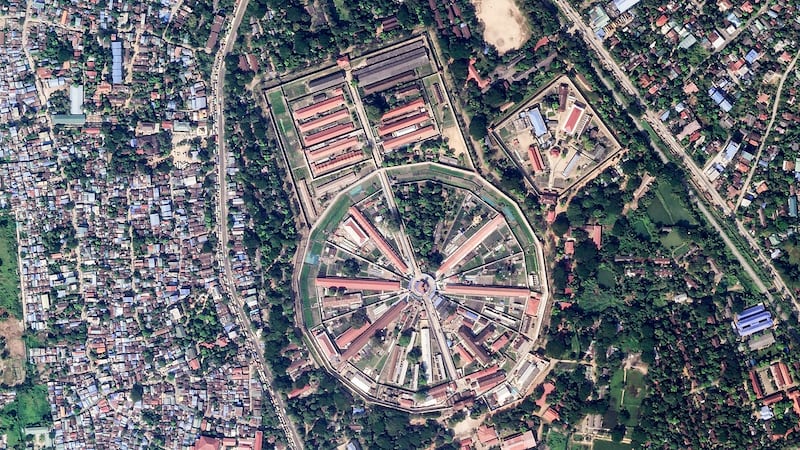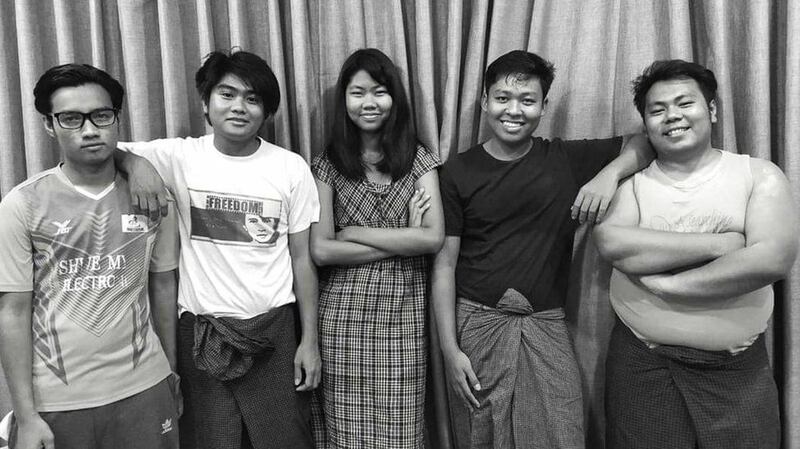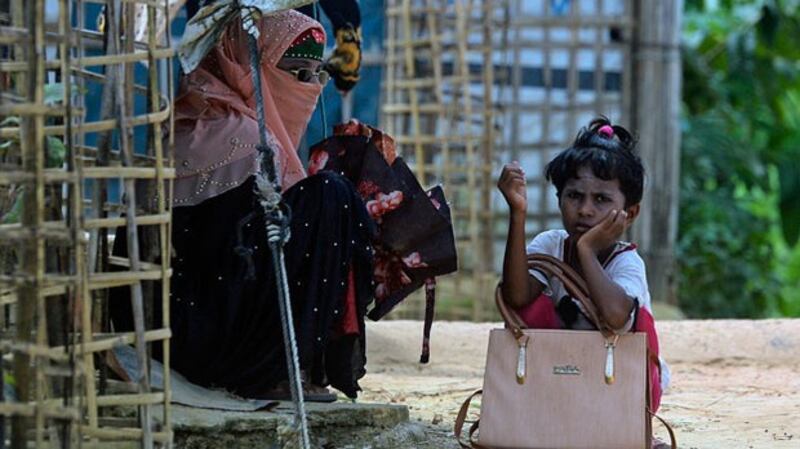Myanmar leader Aung San Suu Kyi – for decades arguably the world’s most admired prisoner of conscience -- is facing calls to strike down harsh laws that have kept the population of political prisoners embarrassingly high for an emerging democracy run by a Nobel laureate.
The 75-year-old, whose 1991 Nobel Peace Prize was one of only three awarded to someone in detention, won a fresh five-year mandate in a landslide election victory last month by her National League for Democracy (NLD) – a party born of a long struggle against harsh military rule in the country of 54 million people.
The icon of Myanmar’s democracy movement was propelled over a weak opposition by strong popularity at home, where voters ignored the collapse of her global reputation over the expulsion of Rohingya Muslims in 2017 and her defense of army atrocities in an international genocide trial.
With the approach of the annual UN Human Rights Day on Dec. 10, advocates from Myanmar and abroad, as well as UN agencies and Western governments, have called on Aung San Suu Kyi and her government to do something about harsh prison sentences meted out to those exercising the rights of free speeches and other rights whose protection is mandated by Universal Declaration of Human Rights.
Aung San Suu Kyi, who spent total of 15 years over a 21-year period in house arrest and several months in Yangon’s feared Insein Prison where some of her government critics languish, has publicly stated that even one political prisoner is too many for Myanmar.
Her first five-year term, however, is winding down with 584 political prisoners in various stages of incarceration or prosecution, according to the Association of Assistance for Political Prisoners (AAPP Burma), a nonprofit human rights group based in Thailand.
“There are a total of 584 political prisoners, 36 serving prison sentences, 193 on remand awaiting trials and 355 on bail awaiting trials. This is not a small number,” said Bo Kyi, assistant secretary of AAPP

‘Attitude and actions’ unchanged
“To our disappointment, the government and parliament didn’t succeed in mandating the legal definition of political prisoners. Accordingly, the state doesn’t recognize the existence of political prisoners,” he told RFA’s Myanmar Service.
“It is disappointing that the ruling government’s attitude and actions are identical with that of the previous governments,” he said. Myanmar has been under harsh military rule for at least 50 of the 72 years since it gained independence from Britain.
Critics point to two Penal Code sections that they say are abused to jail peaceful critics of the government and especially of the powerful military.
Section 505(a) of the Penal Code makes it a crime to publish or circulate any “statement, rumor or report … with intent to cause, or which is likely to cause, any officer, soldier, sailor or airman, in the Army, Navy or Air Force to mutiny or otherwise disregard or fail in his duty as such.”
Section 66(d) of the Telecommunications Law states that “anyone found guilty of extorting, coercing, restraining wrongfully, defaming, disturbing, causing undue influence or threatening any person by using a telecommunications network” faces up to two years in prison and a fine.
Both have been used to jail performers, Facebook critics and protesting students during Aung San Suu Kyi’s tenure.
“There are a number of very repressive laws that are on the books in Myanmar and we’ve called on the National League for Democracy to use their parliamentary majority to get rid of some of these laws or to change the laws to bring them in line with international human rights standards – and, in fact, the NLD did not do that,” said Phil Robertson, Asia director at Human Rights Watch.
“It’s very surprising to us that a government with so many political prisoners would not recognize that the same laws that were used against them can be used against people in the future,” he said.

Student satirists in jail
Speaking to RFA on the eve of Human Rights Day, which marks the adoption by the United Nations General Assembly on Dec. 10, 1948 of the Universal Declaration of Human Rights, Aung Myo Min, director of Equality Myanmar said "the situation has gotten worse under the ruling government."
“There are many causes that make someone a political prisoner, such as protesting on the street, criticizing the government, campaigning in anti-war movements, making satirical performances against the military and so on,” he said.
“There are many causes and everyone can become a political prisoner any time. “
One of the more colorful yet controversial cases involved a troupe of performers called the Peacock Generation, who were imprisoned for mocking the powerful military in satirical thangyat skits in early 2019. About 25 got a year in jail defaming the military, and courts added a year to three troupe leaders in June.
“We all know that satirical performances are traditional shows since our childhood. People have been performing since the time of Myanmar kings,” said Kyaw Linn, father of Paing Phyo Min, one of the jailed Peacock Generation performers.
“But they filed lawsuit against this performance. Furthermore, they filed the multiple lawsuits on a single case. This is too much. I feel this is persecution,” the father told RFA.
RFA contacted the Union (central) government and the Myanmar Human Rights Commission to seek their comments on the issue but received no reply this week.
Monywa Aung Shin, an NLD spokesman and member of the party’s central information committee member, told RFA “we are all working to minimize all the political problems, including the issues regarding the political prisoners.”
“There is one thing I can say: Under the new government, there will be reviews and progress on what has happened under the previous government,” he said.

Rohingya genocide charges
Activist Nickey Diamond from the Southeast Asia focused NGO Fortify Rights said the first five years of Aung San Suu Kyi’s rue shows “that just because a democratic government is in place does not mean it has created a free and safe condition for the activists.”
“I would like to appeal the government to release all political prisoners under every circumstance and fulfill its pledge to make Myanmar a country without political prisoners,” he told RFA.
Aung San Suu Kyi’s international reputation suffered after her stiff defense of the brutal expulsion of Rohingya Muslims in the face of genocide-related charges against Myanmar at the International Court of Justice in December 2019, when she asked the ICJ to drop the case and rejected copious U.N. and other international evidence out of hand.
Cities in Europe responded by stripping Aung San Suu Kyi of freedom awards, three fellow Nobel peace laureates accused her and the military of committing genocide, and the U.S. Holocaust Museum revoked a prestigious human rights award. There were even calls to rescind her 1991 Nobel Peace Prize.
In 2017, Myanmar’s military responded to attacks by Rohingya militants on border posts in Rakhine with a scorched-earth campaign that destroyed countless Rohingya villages, killed thousands, and drove 740,000 members of the Muslim minority into neighboring Bangladesh, where they remain in crowded camps.
Reported by Thant Zin Oo and Nayrein Kyaw for RFA’s Myanmar Service. Translated by Ye Kaung Myint Maung. Written in English by Paul Eckert.
